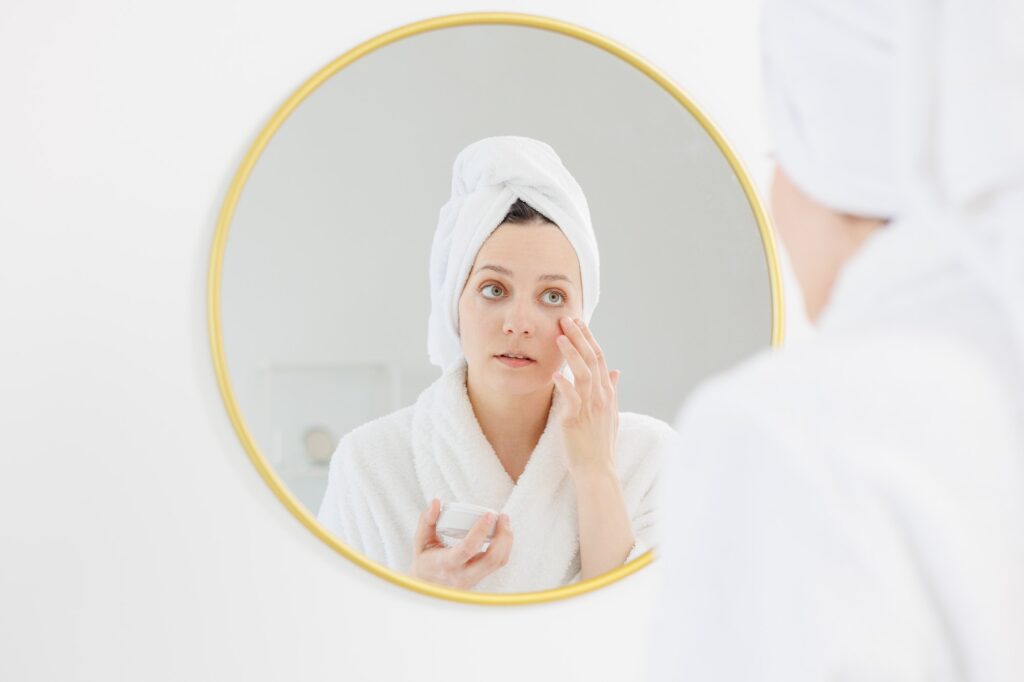Maintaining healthy skin goes beyond just skincare products and treatments. The foods we consume play a crucial role in the health and appearance of our skin. While there is a lot of information available on the internet about the relationship between diet and skin health, it is important to rely on scientific research and consult with a dermatologist for personalized advice. In this article, we will explore the impact of diet on various skin conditions and discuss the best dietary practices for maintaining healthy skin.
The Connection Between Acne and Diet
Acne is a common skin condition that affects many individuals, especially during adolescence. For years, dermatologists believed that there was no direct link between diet and acne. However, recent research has shed light on the impact of certain foods on acne development and severity.
One food group that has been associated with acne is dairy products. Several studies have shown a weak but significant association between dairy consumption and acne. In particular, skim milk has been found to have a stronger connection to acne compared to other dairy products. The hormones and growth factors present in milk, as well as its high carbohydrate content, are believed to contribute to acne development.
Another dietary factor that plays a role in acne is the glycemic load of a diet. Foods with a high glycemic index, such as sugar, white bread, and white rice, are rapidly absorbed by the body, leading to increased insulin and insulin-like growth factor-1 (IGF-1) levels. These hormonal changes can stimulate sebum production, increase androgen bioavailability, and contribute to the development of acne.
While more research is needed to fully understand the relationship between diet and acne, it is clear that dietary interventions can influence the course of the disease. Individuals with acne may benefit from reducing their consumption of dairy products, especially skim milk, and adopting a low glycemic load diet. Consulting with a dermatologist is essential to determine the best dietary approach for managing acne.

The Role of Diet in Skin Cancer Prevention
Skin cancer is the most common type of cancer in the United States, and prevention is crucial. While sun protection is the most effective measure in reducing the risk of skin cancer, diet also plays a role in overall cancer protection. Numerous studies have shown that a diet rich in fruits and vegetables can reduce the risk of various types of cancer, including skin cancer.
The antioxidants present in fruits and vegetables have been found to protect the skin against the damaging effects of ultraviolet (UV) radiation. UV radiation generates free radicals, which can damage proteins, lipids, and DNA in the skin, leading to inflammation and increased risk of skin cancer. Antioxidants help neutralize these free radicals and promote DNA repair.
Certain phytonutrients found in plant-derived foods, such as curcumin, lycopene, and genistein, have also shown potential in reducing the risk of skin cancer. These compounds have been found to protect the skin from UV-induced inflammation, oxidative stress, and DNA damage.
While dietary supplements containing isolated antioxidants have not shown significant benefits in skin cancer prevention, consuming a diet rich in whole foods, particularly fruits and vegetables, has shown promising results. It is important to note that supplements should be taken under the guidance of a dermatologist or healthcare professional to ensure safety and effectiveness.
Diet and Aging Skin
As we age, our skin undergoes natural changes, including the development of wrinkles, sagging, and loss of elasticity. While these changes are a part of the aging process, certain dietary factors can accelerate the signs of aging.
One of the key contributors to aging skin is glycation, a process that occurs when sugars in the bloodstream bind to proteins, including collagen and elastin, in the skin. This results in the formation of advanced glycation end products (AGEs) that lead to increased stiffness and reduced elasticity of the skin.
To minimize the effects of glycation, it is important to limit the consumption of sugary and processed foods. High-glycemic index foods, such as white bread, junk food, and sugary snacks, can cause spikes in blood sugar levels, leading to increased formation of AGEs. Opting for a diet rich in whole grains, fruits, and vegetables can help maintain the elasticity and youthful appearance of the skin.
Certain nutrients, such as vitamins A, C, D, and E, along with minerals like zinc and selenium, also play a vital role in maintaining healthy skin. These nutrients support collagen production, protect against oxidative damage, and promote overall skin health. Including a variety of colorful fruits and vegetables in your diet can provide the essential vitamins and minerals needed for vibrant and youthful skin.

Diet and Psoriasis
Psoriasis is a chronic inflammatory skin condition that is often associated with an increased risk of cardiovascular disease. While the exact relationship between diet and psoriasis is still being studied, there is evidence to suggest that certain dietary factors can influence the severity and management of the disease.
Individuals with psoriasis often have comorbidities such as obesity, diabetes, hypertension, and dyslipidemia, which further increase their risk of cardiovascular disease. Adopting a healthy diet that focuses on weight management, blood sugar control, and cholesterol regulation can help improve both skin and cardiovascular health.
While no specific diet has been proven to cure psoriasis, some individuals may find that certain foods trigger or worsen their symptoms. Keeping a food diary and working with a dermatologist or registered dietitian can help identify potential triggers and develop a personalized dietary plan.
In general, a balanced and nutritious diet that includes plenty of fruits, vegetables, lean proteins, and whole grains can support overall skin health and potentially alleviate some symptoms of psoriasis. It is important to remember that dietary changes should be discussed with a healthcare professional to ensure they align with individual needs and any existing medical conditions.
Best Dietary Practices for Healthy Skin
While the impact of diet on skin health may vary from person to person, there are some general dietary practices that can support healthy skin for most individuals. Here are some key tips to consider:
- Eat a Variety of Colorful Fruits and Vegetables: Fruits and vegetables contain a wide range of vitamins, minerals, and antioxidants that promote skin health. Aim for a rainbow of colors in your diet to ensure you are getting a diverse array of nutrients.
- Consume Healthy Fats: Omega-3 fatty acids, found in fatty fish like salmon and nuts, help maintain skin hydration, reduce inflammation, and support cell turnover. Including sources of healthy fats in your diet can benefit your skin.
- Stay Hydrated: Proper hydration is essential for healthy skin. Drink an adequate amount of water daily to keep your skin hydrated and promote overall health. Limit sugary and caffeinated beverages, as they can have a negative impact on hydration.
- Limit Processed and Sugary Foods: High-glycemic index foods and sugary snacks can contribute to inflammation, acne, and accelerated skin aging. Opt for whole, unprocessed foods whenever possible to promote skin health.
- Consider Food Allergies and Sensitivities: While food allergies are not the primary cause of skin conditions, certain individuals may experience flare-ups or worsened symptoms due to specific food allergies or sensitivities. If you suspect a particular food is affecting your skin, consult with a dermatologist or allergist for proper testing and guidance.
- Consult with a Dermatologist: If you have specific skin concerns or conditions, it is important to seek guidance from a board-certified dermatologist. They can provide personalized advice and recommendations based on your individual needs and medical history.
Remember, maintaining healthy skin is a holistic process that involves proper skincare, sun protection, and a balanced diet. While diet alone may not be a cure-all for skin conditions, it can significantly contribute to overall skin health and help manage certain skin issues. By adopting a nutritious and balanced diet, you can support your skin from the inside out.
For personalized guidance and recommendations, consult with a dermatologist who can assess your specific needs and develop a comprehensive plan for healthy skin.









